MS-ESS3-5
Ask questions to clarify evidence of the factors that have caused the rise in global temperatures over the past century.
-
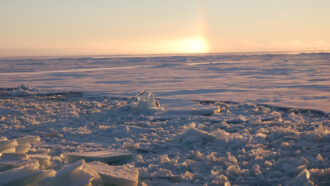 Climate
ClimateCan scientists develop an icy sanctuary for Arctic life?
The final refuge for summer sea ice may also protect the creatures that depend on it. Saving it is an ambitious goal with many hurdles.
By Freda Kreier -
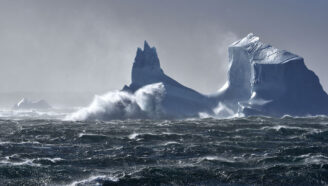 Life
LifeFrom icebergs to smoke, forecasting where dangers will drift
Smoke drifts. Fish eggs float downstream. Where such drifting things end up may seem a mystery. But research can predict where they’ll end up.
-
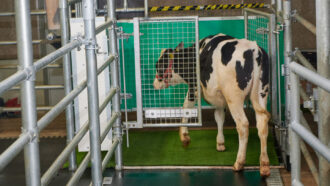 Agriculture
AgriculturePotty-trained cows could help reduce pollution
About a dozen calves have been trained to pee in a stall. Toilet training cows on a large scale could cut down on pollution, scientists say.
-
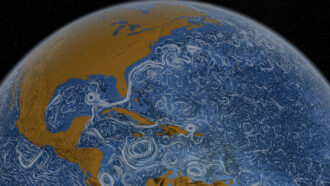 Physics
PhysicsResearch on climate and more brings trio the 2021 physics Nobel Prize
Syukuro Manabe and Klaus Hasselmann pioneered work on simulations of Earth’s climate. Giorgio Parisi probed complex materials.
-
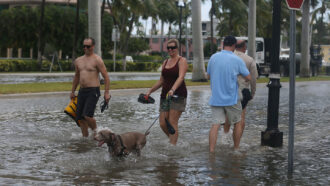 Oceans
OceansMoon’s orbital wobble can add to sea-level rise and flooding
In a dozen years or so, the tide-enhancing effects of a wobble in the moon’s orbit should lead to dramatically higher sea levels in some coastal cities.
By Sid Perkins -
 Animals
AnimalsTiny animals survive 24,000 years in suspended animation
Tiny bdelloid rotifers awake from a 24,000-year slumber when freed from the Arctic permafrost.
-
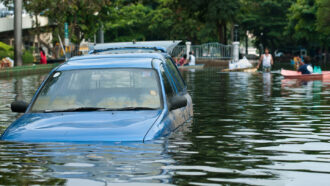 Environment
EnvironmentWarming cities may see more rain — and frequent flooding
Scientists are seeking to understand why and how to mop up excess precipitation.
-
 Environment
EnvironmentExplainer: Urban heat islands and how to cool them
Cities transform landscapes covered in plants to ones covered in heat-absorbing asphalt and concrete. But ways exist to cool these urban heat islands.
-
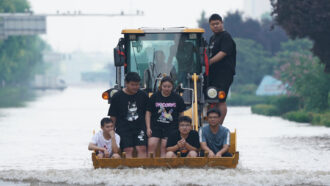 Climate
ClimateNew UN climate report finds no time for denial or delay
It links extreme weather around the globe to Earth’s changing climate.
-
 Earth
EarthLet’s learn about Antarctica
This continent is dry, windy and very cold — and home to penguins, ice and a lot of scientific research.
-
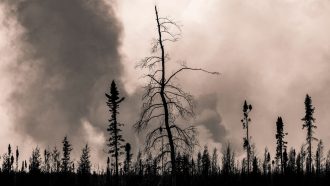 Environment
Environment‘Zombie’ wildfires can reemerge after wintering underground
Climate change may make these not-quite-dead blazes more common. Scientists are learning to predict where a zombie might emerge.
-
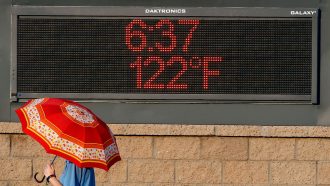 Climate
ClimateU.S. records reveal the last 30 years were the hottest on record
New ‘climate normals’ show that average temperatures increased notably just since 1990.